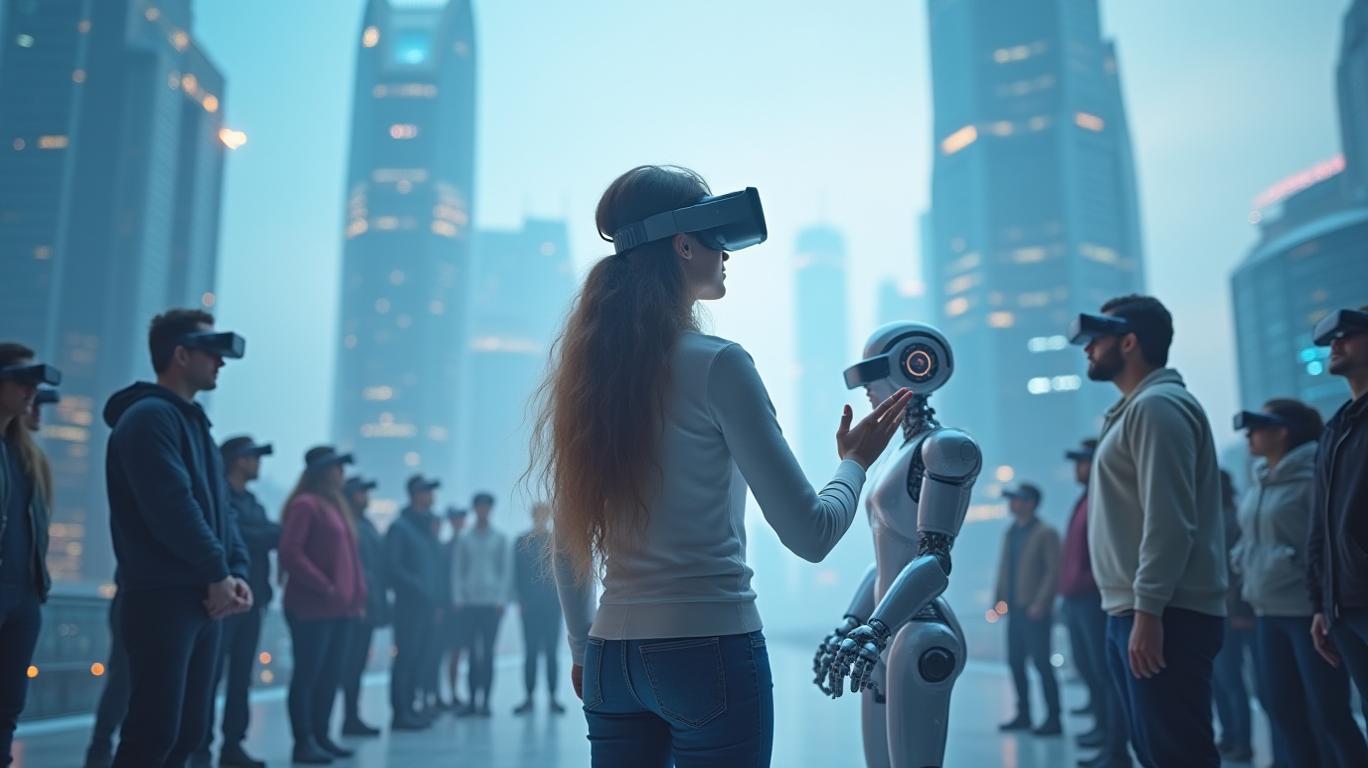Revolutionizing Digital Companionship: AR, VR, and AI Converge
In the rapidly evolving landscape of artificial intelligence, digital companionshipDGLY-- has emerged as a burgeoning trend, with thousands of users seeking platforms to find their ideal virtual companion. Someone to talk to, someone to share feelings with, and someone who understands them. However, the current options lack customization and personalization, making it challenging for users to find comfort and solace.
The issue lies in the lack of meaningful conversations and limited customization options. Most platforms fail to learn user preferences and offer chat-based interactions, which can feel monotonous and unengaging. This is where the perfect blend of Augmented Reality (AR), Virtual Reality (VR), and Artificial Intelligence (AI) comes into play.
Market reports indicate that the AI market is projected to reach over $1 trillion by 2028, while the AR and VR market is expected to hit $1.5 trillion by 2030. By integrating these technologies, a product can be created that redefines and revolutionizes digital companionship like never before.
But the question remains: why is there a need for virtual companionship, and who stands to benefit the most?
The demand for virtual companionship is driven by the shift of work to online platforms, which has reduced social interactions to an all-time low. The pandemic has exacerbated this issue, leading to complete isolation for a significant portion of the population. Virtual companionship provides a sense of connection without the complexities of human relationships. Additionally, as mental health awareness has grown, people have realized the positive impact of virtual interactions, as AI-based companions are non-judgmental and offer a safe environment to voice concerns. As technology advances, digital companions have become capable of planning online dates and sending virtual gifts.
Recent studies suggest that more people will embrace virtual companionship in the coming years to alleviate loneliness. This trend is expected to increase exponentially in the next decade, particularly among those in the tech field who work from home or have minimal social contact, as well as individuals with mental health issues.
Humans are social beings, and as ample social contact becomes a luxury, virtual companionship will become a necessity. However, the available options are limited, as no platform has yet found the perfect balance between AR, VR, and AI. AR and VR enhance the overall experience, allowing for a wide range of customizations, while AI adds a personal touch to interactions, making them more engaging and meaningful 
Quickly understand the history and background of various well-known coins
Latest Articles
Stay ahead of the market.
Get curated U.S. market news, insights and key dates delivered to your inbox.

Comments
No comments yet